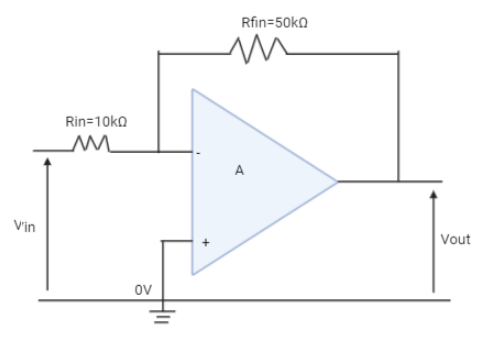Question
Question: (a) What is op- amp? Explain the operation of non-inverting comparators. (b) Design an inverting a...
(a) What is op- amp? Explain the operation of non-inverting comparators.
(b) Design an inverting amplifier with a gain of -5 and an input resistance of 10kΩ .
Solution
An op-amp is a linear Integrated circuit which has multiple terminals. The basic configuration for the positive voltage comparator is known as a non-inverting comparator which detects when the input signal is above or more positive than the reference voltage and it produces an output voltage of high value.
Complete answer:
An operational amplifier i.e., op-amp is a DC coupled i.e., direct coupling high gain electronic voltage amplifier with a differential input and generally a single-ended output. Differential signalling or input is a method for electrically transmitting information using two complementary signals. Op-amps are used widely in electronic devices which include a vast range of consumer, industrial and scientific devices. The op-amp is a one type of differential amplifier which is a type of electronic amplifier that amplifies the difference between two input voltages but suppresses any voltage common to the two inputs.
In a non-inverting comparator, the reference voltage is connected to the inverting input of the op-amp and the input signal is connected to the non-inverting input. In other words, we assume that the two resistors which form a potential divider network are equal. This arrangement will produce a fixed reference voltage which is half of the supply voltage and the input voltage varies from zero to supply voltage. The output voltage depends on the value of input voltage.

The above figure is an inverting amplifier with a gain of -5 and input resistance is 10kΩ . Vin and Vout represent input and output voltage. Rin and Rfin denote input and final resistance. A denotes an amplifier. Gain=VinVout and also VinVout=−RinRfin . Hence,
Gain=10−Rfin
−5=10−Rfin
∴Rfin=50kΩ
Hence, the value of final resistance is 50kΩ with a gain of -5 and an input resistance of 10kΩ.
Note: Kindly remember the definition of op-amp i.e., it is a direct coupling high gain amplifier and in an non-inverting comparator reference voltage is connected to inverting input and input voltage is connected to non-inverting input. In an inverting amplifier, input signal or resistance is connected to negative terminal and zero voltage is connected to positive terminal of the op-amp.
